War's forgotten faces
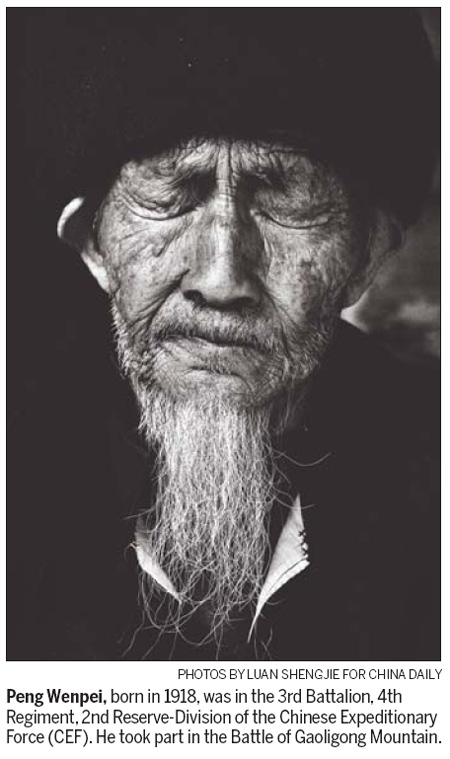
An intrepid photographer tracks down the heroes of 1942, bringing those who had vanished from the nation's collective memory under the spotlight once agian. Qi Xiao reports
They fought on the frontlines during the Second World War. They risked their lives protecting China from Japanese aggression.
But those who lived through bullets and bombs and once basked in the glory of victory have languished in anonymity, their heroic actions fading from the nation's collective memory.
Now, thanks to Luan Shengjie, a 23-year-old photographer, the Chinese Expeditionary Force (CEF) is once again in the limelight.
"Surfing the Internet one day in November 2009, I learned of a charity drive for about 100 veterans in Yunnan province," he says, "The next day I was on the train to Yunnan with some money and my cameras."
Dispatched by the then Kuomintang government to Myanmar on the request of the United Kingdom, the CEF joined the British and US forces from 1942 to 1945 and successfully resisted Japan's onslaught in western Yunnan. "I have been interested in the history of China's resistance against Japanese aggression since I was very young," Luan says. "I read books and watched movies about that period. As I grew older, my focus gradually turned to people - those who fought the war."
For more than 20 days, Luan went door to door in small villages in Tengchong county, Yunnan province, looking for the CEF veterans. His efforts paid off when he found 41 of the 70 in the county. Most were aged between 80 and 100; some were over 100.
They were more than willing to be photographed and the pictures Luan took then have been posted on xitek.com, a well-known Chinese website for professional photographers. "History is etched in every line and furrow on their faces," he says.
When Luan asked them what they wished for, some mentioned money and some a desire to return to their hometowns. "Most said they no longer had any wish, which made me feel sad," he says.
While the majority of the veterans are settled in Yunnan province, others are scattered across the nation and some are still living in Myanmar, according to Luan. One estimate puts the number at over 300, including those who retreated to India in 1942 during the CEF's first stage of war.
"As far as I know, half of them are in Yunnan," Li Minghui, who donated more than 600,000 yuan ($87,925) personally to these veterans and is campaigning vigorously for their welfare, tells China Daily. "The rest are largely in Guangxi, Hunan, and Sichuan. But there is no authoritative data yet on the number of CEF veterans still alive."
Many of them are leading a less than glorious life. Only a third secured a stable job after retiring from the army, entitling them to a current monthly pension of 2,500 yuan, according to the United Front Work Department of Tengchong county.
"Most of them turned to farming after the war," Luan says. "Their general living conditions are not high. Some are downright miserable."
One of Luan's portraits shows a veteran named Peng Wenpei with his eyes closed.
"He is suffering from eye disease, but is too poor to afford the treatment," Luan explains. "Because of their affiliations with the Kuomintang, they also suffered during the political movements from the 1950s to 70s," says Ge Shuya, a renowned expert on the CEF. "Their children too were affected, with far fewer opportunities open to them."
Although sometimes the local governments provide assistance - for example, veterans in Longling county, Yunnan, were included in the minimum living standards program - there is still no coherent or explicit policy in place on how to deal with them, Ge says.
Ignorance of the CEF among the general public isn't helping either. "We are living a fast-paced life, with much pressure to cope with," Luan says. "Many people are not interested in history as they think history has nothing to do with their lives."
However, "these veterans are the ones we will owe forever", Ge adds.
Luan reveals that he has reached a verbal agreement with the Allsages Bookstore, one of Beijing's best academic bookstores, to hold a photo exhibition there. He hopes this will create more awareness about these men. "The veterans were very happy when they saw themselves on my digital camera," he says. "I hope what my lens has captured are not merely unrelated portraits, but the last living faces of the Chinese Expeditionary Force for our era."
Guo Shuhan contributed to the story.
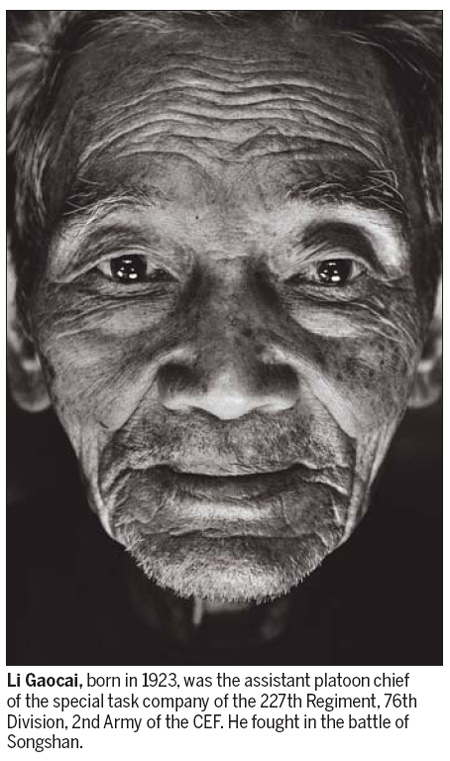
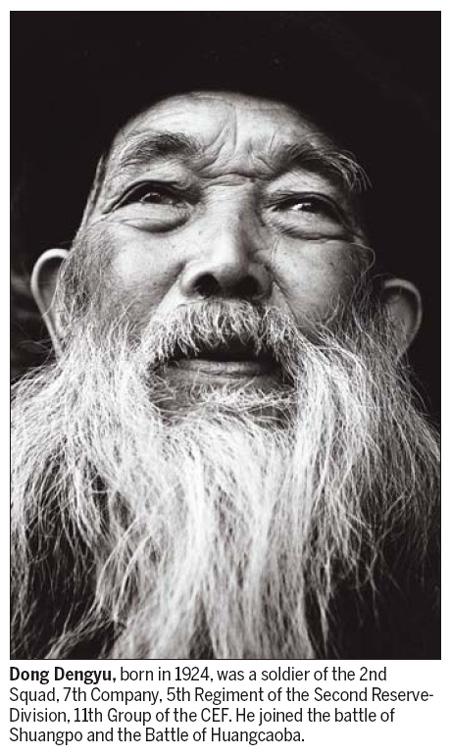
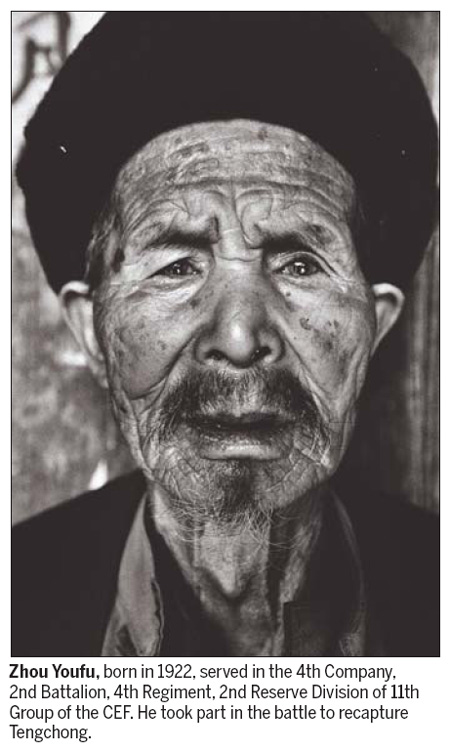


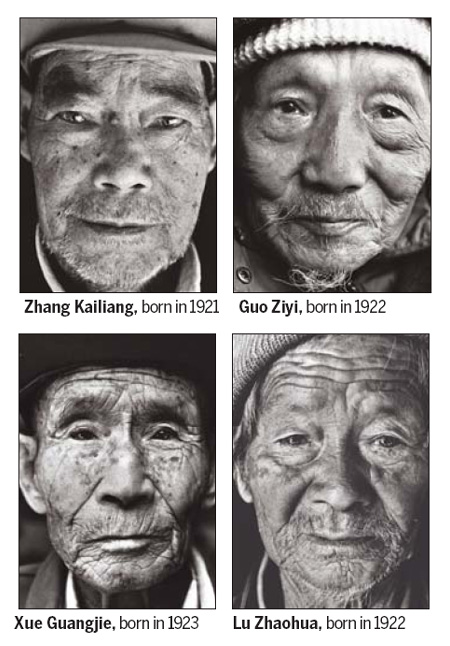
(China Daily 04/13/2010 page18)














